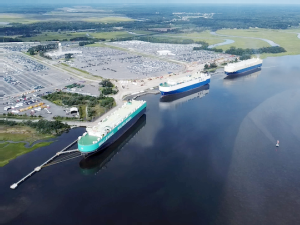"Shippers should be wary of these new competitors who have neither the experience nor the skills required to move these very special types of freight," asserted Ike Ortiz-Luis, International Project Cargo Manager at Dependable Global Express (DGX), a freight forwarding firm based adjacent to Long Beach, CA.
"Handling oversized cargo from origin to destination demands a special touch," continued Ortiz-Luis. "Multi-billion dollar projects may require months or even years of careful logistics planning. There are no shortcuts when transporting project cargo like an electric power plant or an entire hospital to a third world country," he continued.
"Experience in handling oversized cargo projects is perhaps the single most important factor in choosing an agent," stated the DGX Manager who has ten years experience in moving heavyweight freight. "The service provider should have a record of successful projects. He should be willing, even eager to provide past customer references to the shipper," said Ortiz-Luis.
The project cargo specialist warned that overemphasizing price could be dangerous. "Don't look for the cheapest solution to your shipping problem," advised Ortiz-Luis. While price, of course, is important, quality of service is even more vital."
"Many very large multi-national forwarders who handle oversized cargo shipments often contract them to the real experts due to lack of trained personnel and experience within their organizations. They utilize a more experienced sub contractor to transport a specific shipment," averred the DGX executive.
For breakbulk shipments, all parties involved--customer, shipping line and forwarder must work closely together and as early as possible once the contract has been signed. Before the shipment leaves the factory, everyone involved should know the processes involved and any particular difficulties that must be addressed and solved.
"In moving oversized cargo, our goal is to get the shipment to destination as quickly and as safely as possible. The timing of the shipment, coordinating schedules between shipper, forwarder and consignee is vital," commented the DGX Manager. Ortiz-Luis believes a project cargo specialist can minimize risks in moving huge, bulky pieces of equipment unlike forwarders who lack project cargo experience. "For example, failure to obtain the proper permits to move the shipment cross country from plant to portside can cost the shipper lost time and thousands of dollars. Or not properly calculating the correct weights and measures of the cargo may result in loading delays that also may run into thousands," he said.
"It all boils down to know-how," emphasized the DGX Manager. "That know-how is a result of years of experience in handling many different kinds of project cargo successfully," concluded Ike Ortiz-Luis.









